Some time ago I had the honor of visiting and receiving a tour of the Hong Kong Fire Department training center. Many of the props used there are similar to what I have seen in the United States.
However, there was one very noticeable difference in the maze they use to train firefighters. Noise! They use speakers to pump noise into the room as the firefighters maneuver their way through. Their reasoning makes perfect sense from a neuroscience perspective.
The noisy maze
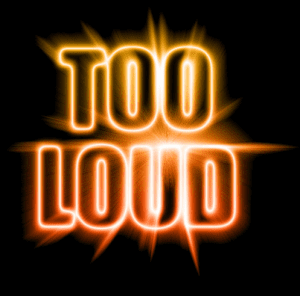 In addition to the noise from the speakers, they use a combination of steam and smoke to create an environment that is hot with low visibility. The steam distribution is loud and distracting but when they turn on the speakers and start pumping in the noise it takes the distractions to a whole new level.
In addition to the noise from the speakers, they use a combination of steam and smoke to create an environment that is hot with low visibility. The steam distribution is loud and distracting but when they turn on the speakers and start pumping in the noise it takes the distractions to a whole new level.
Our tour guide told us the participants complain about the noise more than any other part of the maze. They say the noise is distracting and it breaks their concentration. It confuses them and makes it hard for them to think. The tour guide informed us that is the exact reason they create the noisy environment. They want to create the distractions, confusion and break the concentration of the firefighters.
This particular maze is so technologically sophisticated the operator can track the movements of the participants. The noise has a very noticeable impact on individual and crew performance. Any surprises yet? Probably not. So let’s take this concept to the command level.
Breaking concentration
If firefighters or any other emergency responders working in an environment of high noise have their concentration broken and become confused and the noise makes it hard for them to think, is it plausible the same thing could happen to an incident commander working in an environment where there are loud fans, saws, engines, sirens, air horns, yelling, etc.?
Noise impacts situational awareness
That was one of the research questions I asked when I was identifying the barriers to situational awareness. Turns out that’s exactly what happens and there’s plenty of neuroscience research to back it up. The ears, or more specifically the auditory processing center of the brain, isn’t very good at separating out the noise from the meaningful information.
You can’t squint with your ears
In a stimulus-rich environment the ears are at a disadvantage because they cannot scan. The eyes… can scan. You can look around and see what’s important (or at least what you think is important). It’s much more difficult for the ears to only listen to what’s important. Think about it this way. You can squint with your eyes but you can’t squint with your ears.
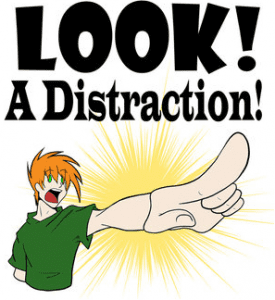 In a noisy environment your ears will take in and process noise as much as they do the information and everything that comes in to the ears has to go through a conversion of sorts from sounds to meaningful information. The more noise there is, the more the channels get bogged down, perhaps even clogged up.
In a noisy environment your ears will take in and process noise as much as they do the information and everything that comes in to the ears has to go through a conversion of sorts from sounds to meaningful information. The more noise there is, the more the channels get bogged down, perhaps even clogged up.
If you’ve ever tried to concentrate on something in a noisy environment you know it can be darn near impossible and you’ll either want to shut off the noise or retreat to some place quiet where you can think. If reducing the noise improves your thinking in your day-to-day life, then reducing the noise for an incident commander will have the same positive outcome – less distractions, improved concentration, less confusion and easier to keep your mind on what’s important.
Situational awareness entails your ability to capture clues and cues, process them into meaning and then to subsequently make accurate predictions about future events. Noise impacts all three levels of situational awareness. Noise can keep you from capturing audible clues and cues. Noise can overload your auditory processing center and keep you from comprehending what is happening. Finally, noise can consume so much brain function that it makes it impossible for you to think about future events.
Dr. Gasaway’s Advice
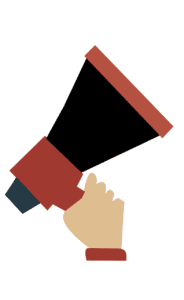 As you determine the location from where you are going to command, consider the impact of noise on your ability to command effectively. Don’t fool yourself into believing that you are somehow immune from the impact of noise on your brain’s ability to concentrate and comprehend. Unless you possess some special skills that can filter out noise and only process the most important pieces of information in the environment you are working in, you are vulnerable.
As you determine the location from where you are going to command, consider the impact of noise on your ability to command effectively. Don’t fool yourself into believing that you are somehow immune from the impact of noise on your brain’s ability to concentrate and comprehend. Unless you possess some special skills that can filter out noise and only process the most important pieces of information in the environment you are working in, you are vulnerable.
Command from a location that removes you from having to hear and process extraneous noise. This includes fans, saws, engines, conversations and yelling. You may not be able to remove yourself entirely from the sound of sirens and air horns of arriving units, but you should avoid being in direct line of them.
Action Items
 1. Discuss how noise impacts your ability to think at emergency scenes. What can you do to reduce its impact?
1. Discuss how noise impacts your ability to think at emergency scenes. What can you do to reduce its impact?
2. Create an exercise where responders are given the task of memorizing a combination of words, numbers, letters and colors. First do it in a quiet environment. Then repeat the exercise (with words, numbers, etc. in a different order) in an environment with a radio playing loud and obnoxious music. Compare and discuss the results.
3. Create an exercise where responders are given the task of completing some basic math calculations and reading a small passage and answering questions about the passage. First do it in a quiet environment. Then repeat the exercise in an environment with someone carrying on a loud conversation that includes story telling and laughing. Compare and discuss the results.
_____________________________________________________

If you are interested in taking your understanding of situational awareness and high-risk decision making to a higher level, check out the Situational Awareness Matters Online Academy.
CLICK HERE for details, enrollment options and pricing.
__________________________________
Share your comments on this article in the “Leave a Reply” box below. If you want to send me incident pictures, videos or have an idea you’d like me to research and write about, contact me. I really enjoy getting feedback and supportive messages from fellow first responders. It gives me the energy to work harder for you.
Thanks,

Email: Support@RichGasaway.com
Phone: 612-548-4424
SAMatters Online Academy
Facebook Fan Page: www.facebook.com/SAMatters
Twitter: @SAMatters
LinkedIn: Rich Gasaway
Instagram: sa_matters
YouTube: SAMattersTV
iTunes: SAMatters Radio
iHeart Radio: SAMatters Radio

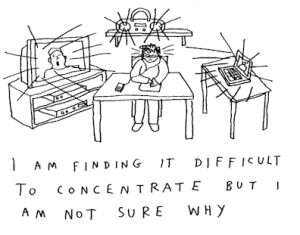
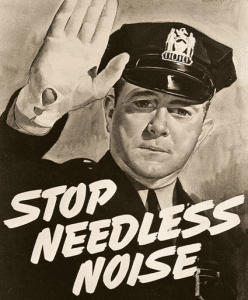
Noise could be why, while driving, we turn the radio volume down when we are lost or trying to follow unfamiliar or complicated route directions…